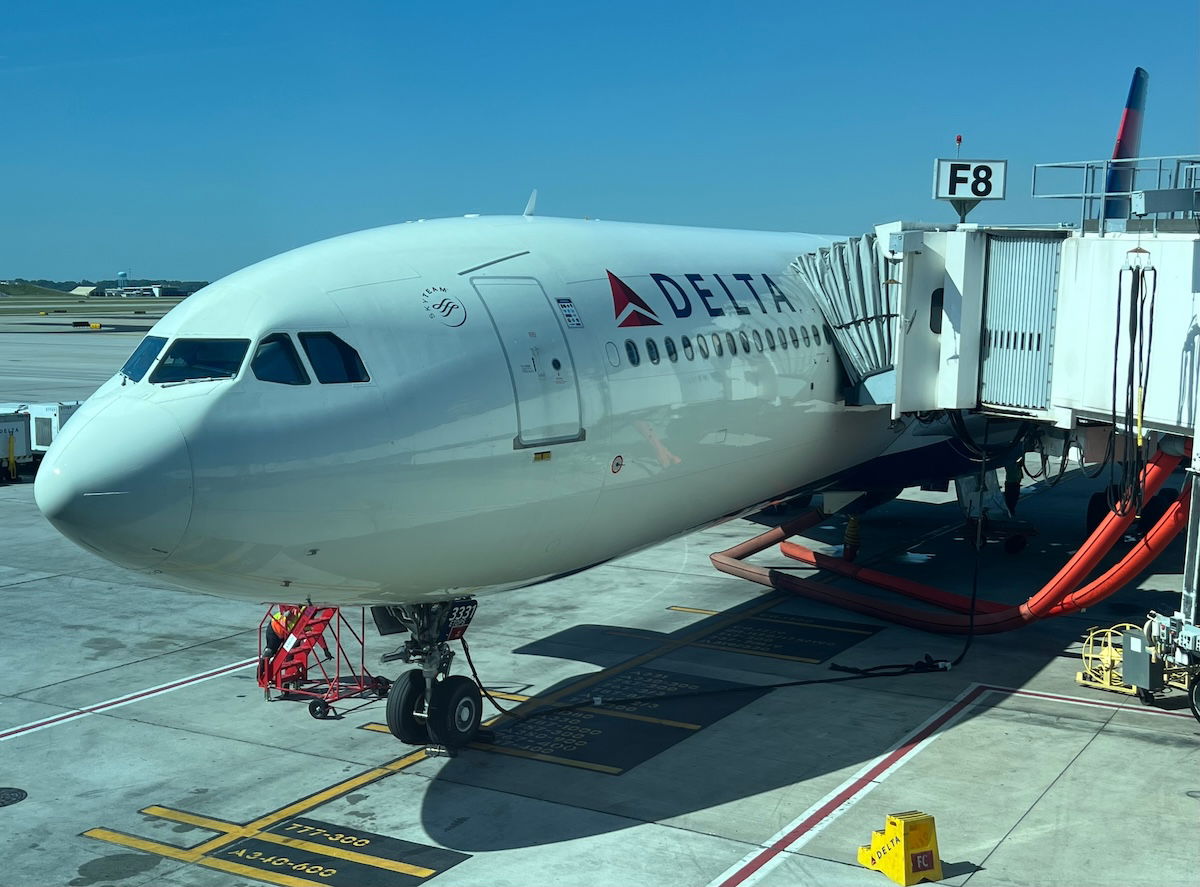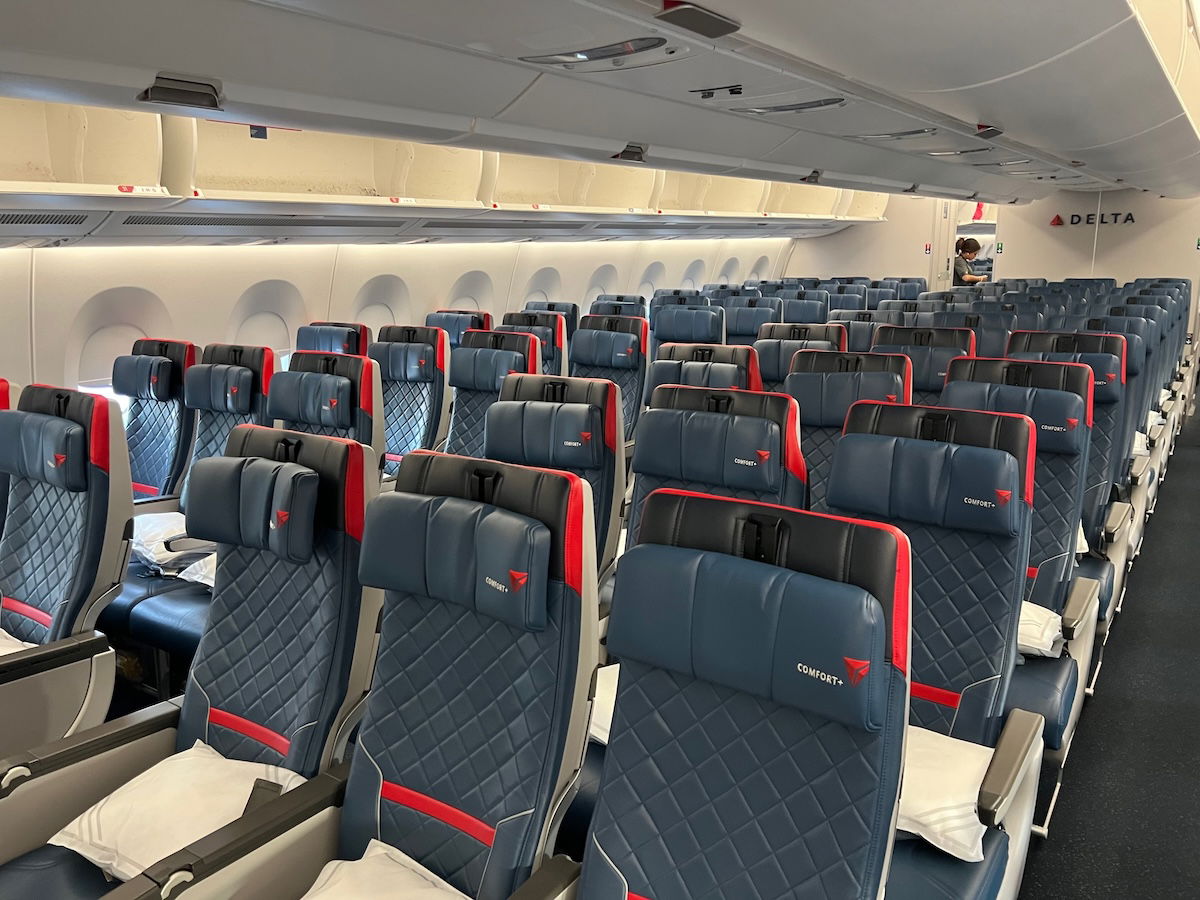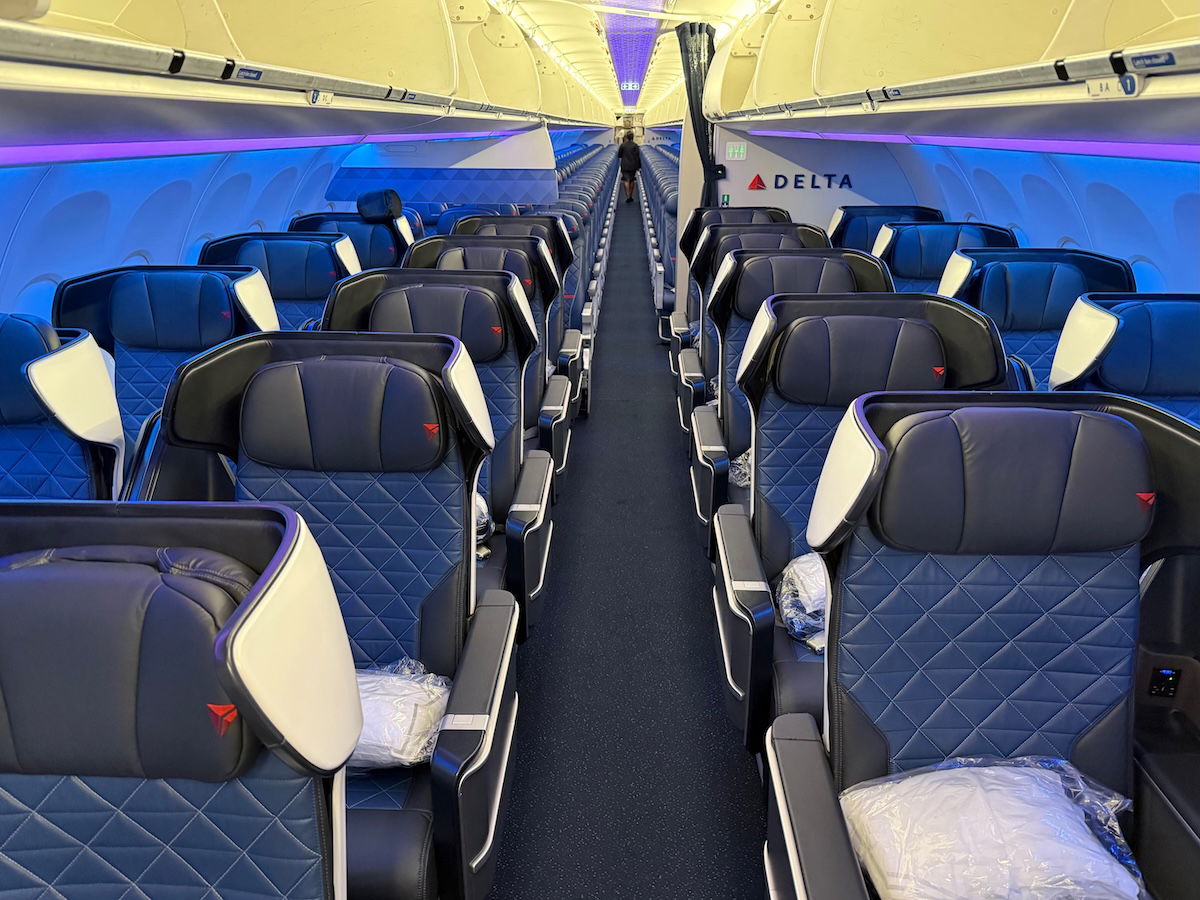Delta Air Lines is the most profitable airline in the United States, and also tends to innovate in many areas, both for better and worse. Along those lines, over the past year we’ve heard Delta executives talk about how the airline will increasingly be using artificial intelligence (AI) to price airline tickets.
It sounds like the airline is planning on massively increasing its use of this capability over the coming months. But what does that really mean for customers? Well, it’s probably not good…
Delta is hugely ramping up use of AI for ticket pricing
During the Delta 2024 Investor Day presentation, Delta President Glen Hauenstein started teasing how the airline would start using AI to price airline tickets. As he described it, “we will have a price available on that airplane at that time that’s available to you the individual,” and described it as “a super analyst, an analyst working 24/7 a day,” to determine the optimal pricing.
During the Delta Q2 2025 earnings call, Hauenstein was asked about the progress of this. TD Cowen Analyst Tom Fitzgerald asked the following:
“I wanted to touch in on your comment on Fetcherr. I think back at the Investor Day, you mentioned that their revenue management solutions were being deployed on about 1% of the network. I was wondering if you could tell us where that number stands today and then just provide a little more details on what you’ve learned with another 6 months of experimenting with AI and revenue management.”
Here’s how Hauenstein responded:
“So today, we’re about 3% of domestic. Our goal is to have about 20% by the end of the year, and that’s a goal. I mean we can report back on what the actual numbers are. But you have to train these models as you might and you have to give it multiple opportunities to provide different results. So we’re in a heavy testing phase. We like what we see. We like it a lot, and we’re continuing to roll it out, but we’re going to take our time and make sure that the rollout is successful as opposed to trying to rush it and risk that there are unwanted answers in there.”
“So this — the more data it has and the more cases we give it, the more it learns, and we’re really excited about it, and we’re really excited about partnering with Fetcherr.”
As you can see, by the end of 2025, Delta may be using its new AI technology to price 20% of tickets, which is an incredibly fast rollout, given how disruptive this could be.
 Delta is increasingly using AI to price airline tickets
Delta is increasingly using AI to price airline tickets
What are the implications of AI pricing for airline tickets?
When I first heard of the concept of AI for airline ticket pricing, I was a little skeptical. Why? Well, airline revenue management already uses a lot of automation, as airlines have millions of different fare combinations filed at any given point, and technology is heavily used with that.
So I wondered, is this AI pricing change actually going to impact consumers, or is this just a way for Delta to cut some jobs in its pricing department? After all, airlines generally charge as much as they can for any given flight, based on the competitive landscape.
What does the transition to AI airline pricing actually look like, though? As you can see, Delta is partnering with Fetcherr on this, an Israeli company that was founded in 2019. Partnering with Delta is a massive win for Fetcherr — the world of airline pricing is notoriously tough to break into, so the fact that Fetcherr managed to get Delta onboard could lead to much further adaptation.
I’ve done a bit of digging on Fetcherr, and the goal is pretty clear. For example, I watched the below pitch for Fetcherr, and a couple of things stood out. First of all, Fetcherr is described as offering “a proprietary engine that accurately and granularly predicts demand and enables high frequency pricing methods used in financial markets and e-commerce.”
Fetcherr has a tactical pricing approach, which “means that it lets our customer take advantage of the vulnerability of their competitors’ rule based system,” “understanding the rules, and then manipulating the market, in order to gain more profit.” The company claims that in testing phases, it has seen revenue uplift of up to 9%, with a 60% decrease in manual processes.
Below you can see some of its services in action.
We’ll have to see how this plays out in practice, but here several thoughts:
- Airline pricing already changes constantly, but it sounds like pricing will become even more dynamic, with constant changes; that will likely be annoying for customers trying to make decisions
- The concept of more customized pricing is concerning, and makes me wonder what factors could be used to price discriminate; I mean, logically, a Delta Diamond Medallion might be willing to pay more for a Delta ticket than a non-elite member, so could we see that reflected in the pricing?
- Fetcherr’s first major partner was Azul, and ultimately Azul operates in much less competitive markets than Delta, where slight pricing adjustments may not hugely impact demand, at least in terms of the competitive landscape
- Ultimately the US airline industry is very competitive, and while the claim of “manipulating the market in order to gain more profit” sounds bad, there’s only so much Delta can get away with, if the pricing changes end up being consumer unfriendly
- To be less cynical, one could also interpret the goal of maximizing profits to come in the form of filling empty seats with more attractive fares
- One certainly wonders how this customized pricing (perhaps using IPs or other user data) will play out in terms of online travel agencies, comparison shopping, etc.
It’s going to be very interesting to see this new pricing model in action, and I’ll reserve final judgment until it’s rolled out on a more widespread basis. It definitely won’t be good for consumers, though I’m also not sure it’ll have a radical impact, simply given the competitive landscape.
 The new AI pricing is intended to increase profits
The new AI pricing is intended to increase profits
Bottom line
While Delta executives have been talking about introducing AI pricing for quite some time now, it seems like the use of this will really ramp up in the near future, with Delta hoping to use this pricing method for 20% of fares by the end of the year.
There’s already a lot of technology used in airline pricing, so it appears that what’s different here is that we’re going to see much more frequent pricing updates, and also more customization for pricing. The goal is clear, and that’s to increase profits. That’s definitely not good, but then again, the industry is competitive, so I’m not sure how much Delta can actually get away with.
What do you make of Delta’s new AI pricing plans?
